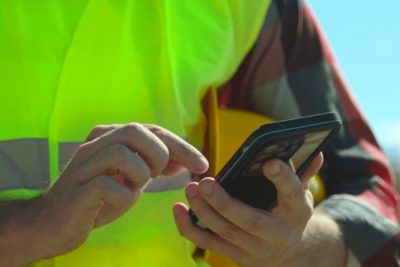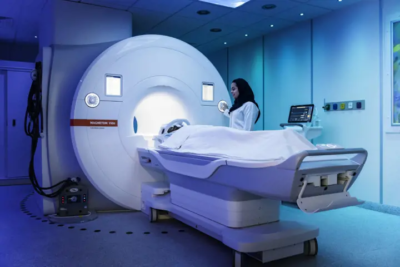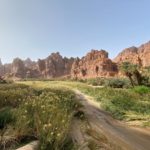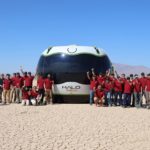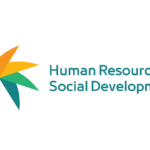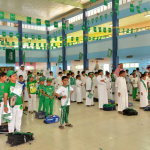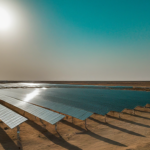
“I am proud to announce the Saudi and Middle East Green Initiatives, but this is only a start. The Kingdom, the region and the world needs to go much further and faster in combatting climate change. Given our starting point, beginning this journey to a greener future has not been easy. But in line with our overall modernization philosophy, we are not avoiding tough choices. We reject the false choice between preserving the economy and protecting the environment.”
–Crown Prince Mohammed bin Salman of Saudi Arabia, in a statement announcing two new ambitious green initiatives to make Saudi Arabia a global leader in combating climate change. [SUSTG]

“Little did we know then, but Vision 2030 would be instrumental in enabling Saudi Arabia to withstand this crisis. It would become the platform toward our quick and healthy recovery. And in many ways Vision 2030 prepared Saudi Arabia for this past year. It enabled us to become resilient and resistant…because Vision 2030 was our reset, and it enabled us to not shut down over past year.”
–Princess Reema bint Bandar Al-Saud, Saudi Arabia’s Ambassador to the United States, in the keynote address at the virtual U.S.-Saudi Business forum hosted by the U.S. Chamber of Commerce. The Ambassador discussed the path forward for U.S.-Saudi business and diplomatic relations, women empowerment, and rebounding from the effects of the pandemic on the global and local economy. [SUSTG]

“The Red Sea Lodge brings together emerging filmmakers four times a year digitally and then in person at the actual festival in Jeddah, Saudi Arabia, which is set for November 11-20, 2021. At the event, the filmmakers will pitch to international production companies, with an independent jury to award two of the projects with grants of $100,000.”
–Esquire Middle East, in a report on the Red Sea Lodge, an eight-month monitoring program held in collaboration with the acclaimed TorinoFilmLab. This year six of the projects are from Saudi Arabia, with six others from Egypt, Jordan, Kuwait and Lebanon. Notably, half the projects are helmed by female directors, with three women in producer roles. [Esquire ME]

“It is like an enormous beached whale. It’s an enormous weight on the sand. We might have to work with a combination of reducing the weight by removing containers, oil and water from the ship, tug boats and dredging of sand…We can’t exclude it might take weeks, depending on the situation.”
–Peter Berdowski, CEO of Dutch company Boskalis which is trying to free the 400 m (430 yard) Ever Given, almost as long as the Empire State Building is high, which is blocking transit in both directions through the Suez Canal one of the world’s busiest shipping channels for oil and grain and other trade linking Asia and Europe. [Reuters]

“From an industry perspective, we see no technical barriers to achieving this, so it’s time to get on with the virtuous cycle of cost reduction through scale up. Having led the race to deliver photovoltaic energy at well-below US$2 cents per kilowatt-hour, in certain geographies, we believe the collective ingenuity and entrepreneurship of the private sector can deliver green hydrogen at less than US$2 per kilogram within four years.”
–Paddy Padmanathan, CEO of ACWA Power, discussing Saudi Arabia’s plans to pursue the development of a it’s hydrogen industry. [Oilprice.com]

“I stressed the need to put the higher national interest first to launch drastic reforms that can restore the international community’s confidence in Lebanon.”
-Walid Bukhari, Saudi ambassador, said after meeting Aoun in his first visit to the presidential palace since 2019. [Reuters]

“On average, the proportion of government revenues coming directly from oil activities in the GCC has fallen by 20 percent of the total in the past decade, but remains high at 60 percent… The three countries that have so far introduced VAT have seen the greatest success in diversifying their revenues, with Saudi Arabia outperforming its peers.”
–Farouk Soussa, Goldman Sachs, commenting on his research regarding GCC states’ diversification efforts. [Arab News]

“I think the most important thing is the readiness of our people. There is always something you learn with each attack, and you go and you enhance your emergency response … and you make sure you have all what is needed to restore these facilities if they are attacked.”
–Amin Nasser, Saudi Aramco CEO, in a company statement reporting net income of $49 billion in 2020, down from $88.19 billion in 2019. “With more deployment of the vaccines we will see more demand pickup so we are very optimistic about 2021 in terms of growth in demand, especially in the second half, and we can see the prices so far responding to what we are seeing in the market, we are looking forward to a much better year in 2021.” [CNBC]

“In the past, it used to be very difficult to get the family involved in the educational and therapy process. However, due to this urgent situation where children are no longer spending around 20 hours at school per week, parents have no choice but to get involved. We should capitalize in these challenging times by keeping the family more involved, because we know that the more the family is involved, the greater the outcomes are.”
-Dr. Faisal Al-Nemary, chief operating officer at the Autism Center of Excellence (ACE) and adviser to the Ministry of Human Resources and Social Development on autism and disability-related issues, in an Arab News investigation of the challenges the Covid pandemic has presented to students with special needs in Saudi Arabia. [Arab News]

“What I hear is a consistent message from the Saudi leadership that they want to do their part to bring the conflict to a close … I’m confident that we’re going to be able to count on Saudi Arabia to do its part.”
–Tim Lenderking, U.S. Special Envoy for Yemen, in a television interview with the BBC and PBS following his second visit to Riyadh in the last 17 days. [Asharq Al-Awsat]

